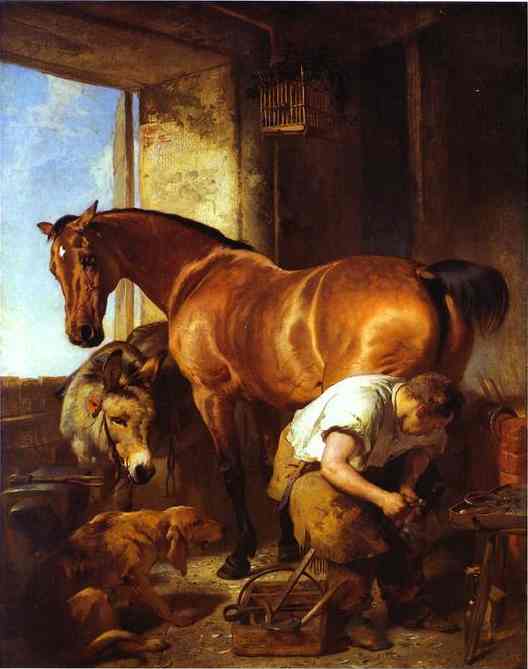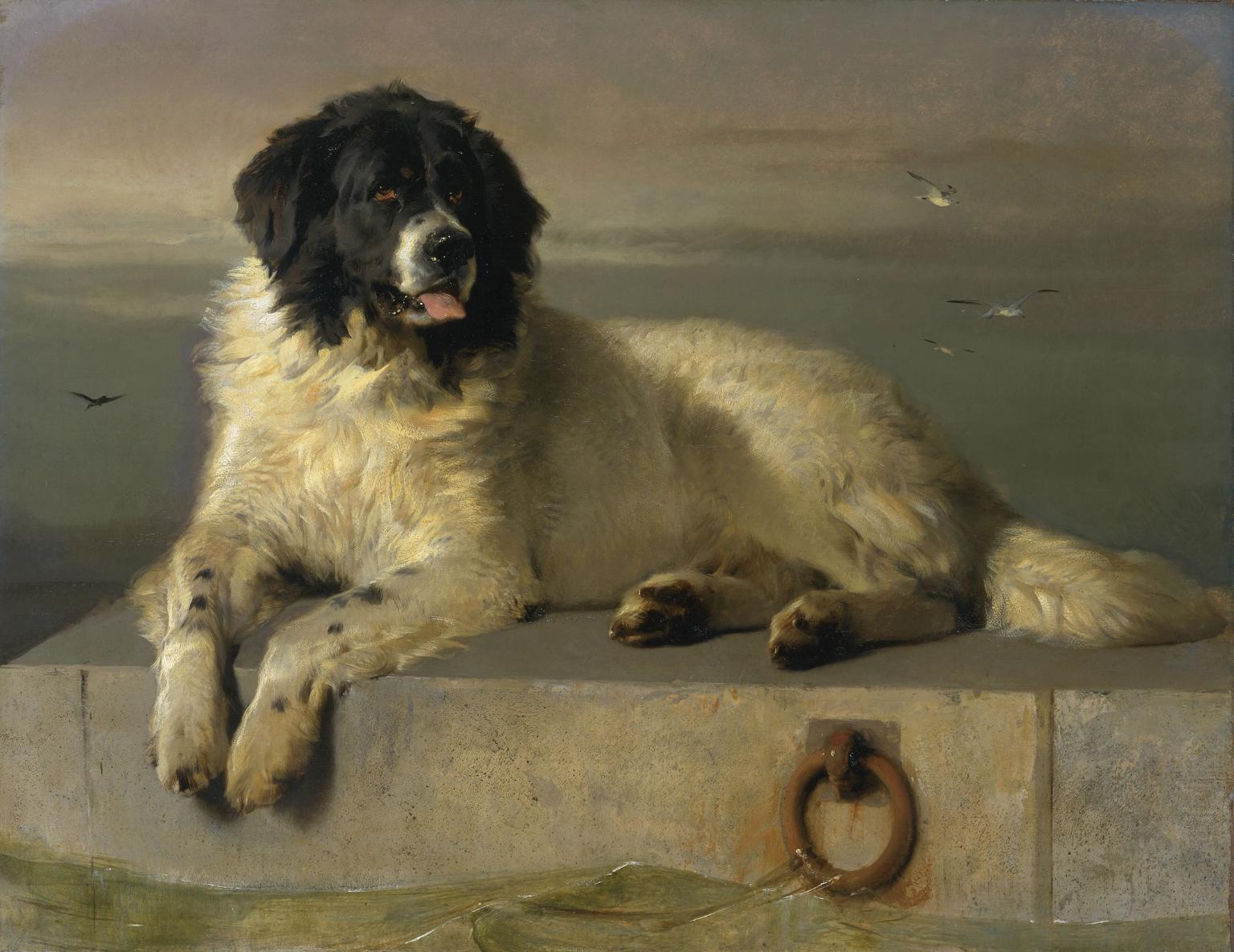 |
| Lion: a Newfoundland Dog by Sir Edwin Henry Landseer |
Franz Schubert - Piano Trio No. 2. This piece of music is quite intense - full of emotional highs and lows, now loud and insistent, then quiet and tender again.
Today's Poem by William Wordsworth is short but wonderfully descriptive!Can't you just picture the man and value all that has brought him to this quiet, settled spirit.
A Sketch
The little hedgerow birds,That peck along the road, regard him not.
He travels on, and in his face, his step,
His gait, is one expression; every limb,
His look and bending figure, all bespeak
A man who does not move with pain, but moves
With thought. -He is insensibly subdued
To settled quiet: he is one by whom
All effort seems forgotten; one to whom
Long patience hath such mild composure given
That patience now doth seem a thing of which
He hath no need. He is by nature led
To peace so perfect, that the young behold
With envy what the Old Man hardly feels.


